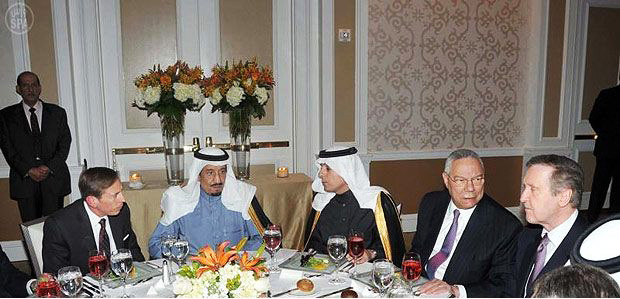
Washington, April 14: Minister of Defense Prince Salman expressed thanks and appreciation for the reception he was accorded in the United States in a meeting with US Secretary of State Hillary Clinton on Thursday.
“The Kingdom of Saudi Arabia and the United States of America are friendly countries that share many common interests,” Prince Salman said.
The prince added that his current US visit is a continuation of the distinguished relations between the two countries.
“The United States of America considers the Kingdom of Saudi Arabia as a close and strategic partner in many critical issues facing the world today,” Hillary Clinton said welcoming the prince to the United States.
Clinton said Prince Salman's visit was very important.In a press statement after the reception, the prince said he conveyed Custodian of the Two Holy Mosques King Abdullah's greetings to US President Barack Obama during his meetings with Obama. The prince also met with US Defense Secretary Leon Panetta and other senior officials.
The reception was attended by Minister of State Musaed Al-Aiban and Saudi Ambassador to Washington Adel Al-Jubeir.
Earlier, the prince also met with Director of the Missile Defense Agency (MDA) Lt. Gen. Patrick O'Reilly and discussed bilateral issues of mutual concern, the Saudi Press Agency reported.
Prince Salman arrived on Tuesday from London where he held talks with Prime Minister David Cameron, Defense Secretary Philip Hammond and Foreign Secretary William Hague on strengthening bilateral relations.






Comments
Add new comment